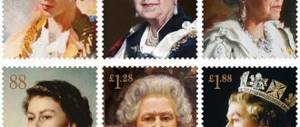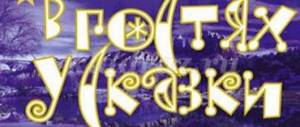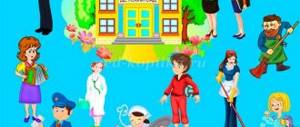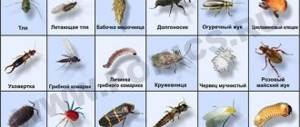Exploits of Youth
Vladimir Dahl was born in 1801 in Lugan (modern Lugansk), where his father, the Dane Johann Christian Dahl, served as a doctor. Taking the name Ivan in Russia, Dahl Sr. married Maria Freytag from a family of Russified Germans and French Huguenots. Vladimir's father knew eight languages, his mother spoke five fluently. From his parents, the boy inherited a sense of words and a wide range of interests: as Maria Dahl said, the desire to “catch on” to any knowledge and skill.
Vladimir Dal in his youth. Photo: wikimedia.org
In 1814, 13-year-old Vladimir and his brother Karl were sent to St. Petersburg to study at the Naval Cadet Corps. Later, Dahl himself wrote that he “killed dead” time there, and “only the rods remained in my memory,” but he graduated from the building 12th in academic performance out of 83 graduates. In 1819, midshipman Dal was sent to the Black Sea Fleet. On the way to a new duty station, he heard and wrote down an unfamiliar word “to rejuvenate” with the note: “In the Novgorod province it means “to be covered with clouds”, speaking of the sky, “to lean toward bad weather” ...”. This was the beginning of a dictionary of spoken living language.
In 1825, Dahl left the navy and entered the medical faculty of the University of Dorpat. During the Russo-Turkish War of 1828–1829, Vladimir was drafted into the active army, and before leaving, he completed his dissertation for the degree of Doctor of Medicine ahead of schedule. “At first, intermittent fever began to choke us, followed closely by its henchmen - debilitating diseases and dropsy,” Dahl recalled about the war. - Without even waiting for the plague, half of the doctors died out; there were no paramedics at all, that is, with several thousand patients there were literally none; There is only one pharmacist for the entire hospital. When it would be possible to feed the sick every day to their fill with hot food and give them plenty of water to drink, then we would cross ourselves.”
But it was in the army that his notebook of the living language was actively replenished. Dahl's biographer Vladimir Porudominsky described this process as follows:
“The soldier stumbled and cursed in his heart: “Damn puddle!” - Kaluga! - confirmed another, it turned out to be a Kostroma resident. Dahl had heard before that in other places a puddle is called kaluga. He writes in his notebook: puddle, Kaluga. But the artilleryman from Tver does not agree: for him, Kaluga is a swamp, a swamp. And the Siberian laughs: who doesn’t know that kaluga is a red fish, like beluga or sturgeon. While they are arguing over Kaluga, the northern messenger suddenly calls the puddle a lyvaya.”
After the end of the war, Dahl went with his regiment to Poland to suppress the uprising, where, in the absence of a real engineer, he took charge of the construction of the crossing across the Vistula. The authorities punished the proactive doctor, but Emperor Nicholas I, who learned this story, granted the hero the Vladimir Cross with a bow.
In 1832, “Russian fairy tales” were published, translated from folk oral tradition into civil literacy, adapted to everyday life and embellished with popular sayings by the Cossack Vladimir Lugansky. It's five o'clock." Dahl, at that time already a resident at the St. Petersburg Military Hospital, had published before, but the general reader recognized him after becoming acquainted with folk tales stylized in the folk style. The critic Vissarion Belinsky did not approve of the work of a certain Lugansky (this pseudonym stuck with Dahl for many years). But Alexander Pushkin immediately saw the author’s talent and pointed him in the right direction:
Class hour "Dal"
Extracurricular activity. Topic: “Great people. Vladimir Ivanovich Dal."
Lesson objectives:
give children the opportunity, with the help of an adult, to learn about V.I. Dal as a great man; motivate children to independently study material on this topic; develop attention and memory; cultivate a sense of respect for great people, their achievements and a sense of pride in their country.
Lesson form: oral journal
Progress of the lesson.
First page
.
Slide No. 1 First presenter:
“Only you with your German punctuality will be able to create a dictionary,” Pushkin admitted to Vladimir Ivanovich
Slide No. 2
On November 29, 1863, the world's first Explanatory Dictionary by Vladimir Dahl appeared. The title belongs to the author himself: he believed that his brainchild was not “stupid”, but explained the words.
Dahl devoted forty-seven years of his life to its creation. The dictionary includes more than 200 thousand words, 80 thousand of which were not previously included in dictionaries. If you simply write them out in a column, you will need 450 lined notebooks.
Second presenter
: Slide No. 3
Vladimir Ivanovich Dal. Vladimir Ivanovich Dal was born on November 22, 1801. The name of this man can be found in textbooks of Russian literature and in works on folklore, in books on ethnography and works on the history of medicine, and even in manuals on military engineering. The most surprising thing is that Vladimir Ivanovich Dal was not a philologist or linguist, that is, a person professionally involved in linguistics. He was not Russian either; his father was Danish.
Second page. First presenter:
Dal's parents.
. Mother Maria Christoforovna Dahl (Freitag) was half-German, half-French from a family of French Huguenots, fluent in 5 languages.. Dahl's father, Danish by birth, came from Danzig (present-day Gdansk), which at that time was part of Germany. Having become a subject of the Russian Empire, William Christian Dahl (later, having converted to Orthodoxy, was named Ivan Matveevich), Johann Christian loved his new fatherland and tried to pass on his love to his children. Subsequently, Vladimir Dal (Vladimir was 11 years old at the time). recalled that his father was very sad that his sons could not take part in the War of 1812. And when my son’s dictionary was published, the following response appeared in one German newspaper: the dictionary turned out to be good only because its compiler was German. Dahl Jr. was offended and told the newspaper publisher his opinion, which later became a catchphrase: a person of the nationality in whose language he thinks.
William Christian Dahl worked as a senior doctor at the Lugansk Foundry and Cannon Factory. For agreeing to come to Russia at the invitation of the government, he was given the title of nobility. However, status alone will not satisfy you. All their lives, Dahl's family earned their bread by working. Vladimir Dal's parents were enlightened people.
Second presenter
: Slide No. 4
Dal himself was born on November 10 (22), 1801 in Lugan, Yekaterinburg province, then the Dal family lived in the city of Nikolaev at the confluence of the Ingula and Southern Bug rivers. Until the age of 13, he was raised at home, where he received a good education.
Third page. Slide No. 5
Vladimir Ivanovich admitted that he never felt any particular desire to be a military man, especially in the navy. As soon as he set foot on board the ship, he began to experience severe attacks of seasickness.
Slide No. 6
When the opportunity arose to receive a free education in the Naval Cadet Corps (at the age of 13, Vladimir Dal, together with his younger brother Karl, went to St. Petersburg to enter the Naval Corps). Vladimir entered there.. Strict rules reigned in the building at that time. For the slightest offense they could be flogged. Neat, always fit, disciplined, Dahl was one of the few who were not flogged even once during his five years of study. But others who were flogged wrote enthusiastic memoirs about the corps, and Dahl hated this institution all his life. “Only rods,” he said about the corps in his old age and recalled a teacher with the surname Metelsky, who forbade the cadets to say the word blizzard: “say blizzard” and the officer on duty who trampled the New Year’s pyramid made by the children. Because it's not supposed to! But there were others too. Otherwise, talented naval commanders, artillerymen, and shipbuilders would not have left the corps. It was not easy to graduate from the corps. Upon graduation, they took exams in algebra, geometry, trigonometry, higher mathematics, geodesy, astronomy, physics, navigation, mechanics, theory of maritime art, grammar, history, foreign languages, artillery, fortification, and naval architecture. It is not surprising that years later, from time to time, it suddenly became clear that Dahl was a good mathematician, geographer, and even a skilled engineer. During the Polish campaign of 1831, he built a pontoon bridge to cross the Vistula, in the shortest possible time and using improvised means. Description, which was published in France. Subsequently, his experience was included in all engineering textbooks of that time.
Third presenter:
Slide No. 7
Among the top 12 graduates. Vladimir Dal sets off on the brig Phoenix on a training voyage to distant shores in Sweden and Denmark. In Stockholm, Dahl was barely pulled out of the museum, but during a ball in Copenhagen, Dahl ran under the stairs and fell asleep. In Denmark, Russian midshipmen were received by the real Prince Christian. The prince was informed that Dahl's father was Danish. The prince turned to Dahl, Dahl replied in French that he did not know Danish. They drove him around Copenhagen, visiting all the Dahls living there, in the hope of finding relatives. They were all only namesakes. Prince Shirinsky, Shikhmatov, who was accompanying Dal, was upset. Dahl was happy. He wanted to go home to Russia. Denmark was interesting for the eyes and ears, but cool for the heart. He didn't feel like this was his homeland. Together with Vladimir Dahl, Pavel Nakhimov and Dmitry Zavalishin took part in this journey. Nakhimov would later become a Russian admiral, the hero of Sevastopol, during the defense of which he would die. Dmitry Zavalishin, one of the most capable students in the corps (in high school he was even assigned to teach mathematics lessons), will become a member of the Northern Society of Decembrists, and will spend more than 30 years in Siberia in hard labor and settlement. Will write memoirs and articles on the history and economy of Siberia. Dahl has his own way.
Fourth page.
After graduating from the cadet corps, Vladimir Dal began collecting words for a future dictionary. In 1819, when he was leaving for his destination after completing his studies in Nikolaev, the coachman said to him: “He’s getting better, master.” Dahl heard such a word for the first time, since it was dialectal, and wrote it down. And it meant: “it’s getting cloudy.” Slide No. 8
First presenter:
After serving seven years in the navy, Dahl retired and left to enter the medical faculty in the city of Dorpat. At that time Dorpat had three names. Russian - Yuriev, Estonian - Tartu, German - Dorpat. They say that every city has its own peculiarity. Dorpat city - student. Life never stops on its streets. Chewing pies as they walk, future historians, botanists, and lawyers rush to their classes. Dahl called the time spent in Dorpat: “a time of delight and a golden age.” He often visits the house of professor of surgery Moyer, where the poets Vasily Andreevich Zhukovsky and Nikolai Mikhailovich Yazykov, Moyer’s favorite student, the future great surgeon Nikolai Ivanovich Pirogov, and the sons of the historian Karamzin come. Dahl is also considered one of the best in the faculty. It seems that he found his place in life: graduate from university, work as a doctor in Dorpat. But in 1829, the Russian-Turkish war began and all medical students were drafted into the army. Dahl defends his dissertation ahead of schedule and is sent to his duty station. He treats the wounded, fights cholera and plague and... collects words. “As soon as a halt is announced, Dahl immediately disappears; after a few minutes you can already see him somewhere in the crowd of soldiers with the same notebook in his hand,” wrote Dahl’s fellow soldier, Doctor de Morny. Dahl records words heard from soldiers collected from all over Russia. He asks what objects and phenomena are called in different regions, surprised that the same word in different regions can mean different objects and, conversely, the same object can be called differently.
Let's take, for example, the most ordinary... puddle. In Kostroma it is kaluga, in the North it is lyva, in Tambov it is mochazhina. While there was a dispute about the puddle, it turned out that Kaluga is both a type of fish in the north and a swamp or swamp in Tver and Kostroma, and a peninsula in Tula and a fish tank in Arkhangelsk. Lyva: a puddle, a forest, and grass brought by the sea.
Slide No. 9
Later, the same De Morny will write that out of three hundred doctors who arrived in the army, more than two hundred died from enemy bullets and diseases. Smarta 1832 Dahl works as a resident of a military land hospital in St. Petersburg, gaining fame as an oculist surgeon. But conflicts with his superiors force him to leave medicine. Dahl did not know how to lie in reports.
Second presenter: Slide No. 10
Dahl again dramatically changes his fate. Becomes an official of special assignments under the military governor Perovsky. Dahl spent seven years in Orenburg, spending time constantly traveling around the steppe, visiting Cossack villages and Kazakh villages. Afterwards he served in St. Petersburg and Nizhny Novgorod. And everywhere Dahl follows himself and teaches others: “Serve according to your conscience, try to do good.” He sorts out peasant complaints, seeks the opening of hospitals, and the admission of peasant children to schools at public expense. People called Dahl “Truthful Dahl.” His superiors saw him as an executive official, and he wrote to his friends that there were lies and hypocrisy all around, that things were done only in projects and on papers. Dahl found consolation in something else. In addition to his service, he writes stories and essays, studies the life and way of life of peoples in the regions where he visits, collects collections of flora and fauna and runs the “Menagerie” section in the Literary Gazette, where he writes about various animals, writes textbooks on zoology and botany, heals people and writes works on medicine, makes caskets and spinning wheels and works on a lathe, collects fairy tales, proverbs, and words.
Fifth page
. Slide No. 11
In 1853, Dahl sent his collection “Proverbs of the Russian People” to the Academy of Sciences, which collected more than 30 thousand proverbs, sayings, and riddles. Dahl wrote down each of them on a narrow strip of paper. Dahl called them straps. If you add up all the straps, you get a ribbon about seven kilometers long. Dahl arranged the proverbs by topic. For example: Homeland - Foreign Land, Youth - Old Age, etc. Each topic is a separate notebook. A total of 180 notebooks. 1809 topics. For several years the collection was rejected, and seditious proverbs directed against the authorities were found in print. Dahl refused to remove objectionable proverbs from the collection. “The proverb has no jurisdiction,” he said. This is the wisdom of the people." Only 9 years later, in 1862, the collection was published.
Slide No. 12
Slide No. 13
Third presenter:
The Minister of Public Education, Prince Golovin, suggested that Dahl sell his words for an academic dictionary. For each new word he gave 15 kopecks, and for adding to existing words - seven and a half kopecks (at that time very decent money: a cow cost about two rubles). Dahl sent Golovin a thousand new words. To which the prince inquired in his reply letter: how much more? And when Vladimir Ivanovich wrote to him that it was about 80 thousand, the deal did not take place. Golovin did not have that kind of money. But, in order to show respect for Dahl’s work, Golovin obtained funding from the emperor for the first volume of the “Explanatory Dictionary of the Living Great Russian Language.”
— Vladimir Dal was engaged not only in philology. While serving in the army, he was known as a highly qualified ophthalmologist and creator of new drugs, which he tested on himself. Also, Vladimir Ivanovich was one of the founders of the Russian Geographical Society, wrote works on zoology and botany. He personally made simple little books with poems and stories for soldiers and sailors, so that they could learn to read and write from them.
First presenter:
Few people know that Dahl initially intended to create a dictionary not of Russian, but of Ukrainian. He collected Ukrainian words while in the Poltava province, and then in St. Petersburg, meeting with Ukrainian writers. However, when he later decided that he would study Russian, he transferred all his research to the rector of Kyiv University Mikhail Maksimovich, from whom they went to Boris Grinchenko, the compiler of the famous Ukrainian dictionary (Boris Grinchenko is also directly related to the Lugansk region. It is here that he worked for a long time and began to create his own dictionary. What made Dahl switch to Russian was that he came to the conclusion: this language does not exist in a systematized form. The speech of the upper class consists of two-thirds French and German, while the peasants speak their own language, with many dialects, language... Dahl is still considered the founder of the modern Russian language, since he managed, albeit partially, to systematize it.
— Vladimir Ivanovich valued the collected materials for the future dictionary most of all. In 1829, during the Russian-Turkish War, a caravan, including a camel loaded with Dahl’s personal belongings, fell into the hands of the Turks. It was not money and clothes that Vladimir Ivanovich grieved most of all, but about the lost notes. The soldiers, seeing that their beloved doctor was sad, made a sortie for him, recaptured the lost camel from the Turks and returned it.
How does Dahl's dictionary work? Slide No. 14
Dahl thought for a long time about how best to arrange the words. Alphabetically? But then between the twin words ride and go there will be: spruce, raccoon, bishop, ruff, corporal and dozens of other words that have nothing to do with driving.
By the root? (There was also such a way to construct dictionaries.) But then it would have turned out something like this: crowbar - break - brittle - break out - break - break off - fracture - break - break - break, etc.
Dahl chose the middle path: he arranged the words alphabetically, but he arranged the words not individually, but in nests. Each nest contains words formed from the same root. With the exception of words that were formed using prefixes. These words are placed under the letters with which they begin. Now the word school heads the nest, in which several dozen words have settled. We learn that school is not only an educational institution, but also sowing and planting trees of different ages for growing fruit or forest trees, training a horse, any position of a person where he acquires resourcefulness, experience and knowledge. To school means to teach, to keep strictly under supervision. Schoolboy, schoolboy - a student who goes to school. Scholasticism is a dry, dull teaching, relentlessly following petty, often absurd rules. To play school, to play school - to have fun with school pranks, to have fun.
Many people took up the philological “collecting” that Dahl did in those days. It was fashionable. However, only he was able to bring the matter to its logical conclusion. When Vladimir Ivanovich, meeting with Pushkin, talked about collecting words, Alexander Sergeevich admitted: “I collect them too, but only you with your German punctuality will be able to create a dictionary. »
— Dal had long-standing friendly ties with Pushkin.
Sixth page. Second presenter: Cossack Lugansky and Pushkin
In the literary field V.I. Dahl started with fairy tales. And he called his first collection (1833) this way: “Russian fairy tales from oral folk traditions translated into civil literacy, adapted to everyday life and embellished with current sayings by the Cossack Vladimir Lugansky. It's five o'clock."
He later wrote about his fairy tales:
“It’s not fairy tales themselves that are important to me, but the Russian word, which is in such a corner in our country that it cannot appear in public without a special pretext and reason - the fairy tale served as the reason. I set myself the task of acquainting my fellow countrymen somewhat with the folk language and dialect, to which such free revelry and wide scope was revealed in the folk tale.”
Dal's acquaintance with Pushkin was supposed to take place through the mediation of the poet Zhukovsky in 1832, but Vladimir Dal decided to personally introduce himself to the famous poet and give one of the few surviving copies of “Russian Fairy Tales...”, published recently, which were immediately banned by the authorities.
Dahl wrote about it this way:
I took my new book and went to introduce myself to the poet. The reason for our acquaintance was “Russian Fairy Tales. The first heel of the Cossack of Lugansk.” At that time, Pushkin rented an apartment on the corner of Gorokhovaya and Bolshaya Morskaya. I went up to the third floor, the servant took my overcoat in the hallway, and went to report. I, worried, walked through the rooms, empty and gloomy - it was getting dark. Having taken my book, Pushkin opened it and read it from the beginning, from the end, where necessary, and, laughing, said, “Very good.”
Slide No. 15
Pushkin was very happy about this gift and in return gave Vladimir Ivanovich a handwritten version of his new fairy tale “About the Priest and His Worker Balda” with a significant autograph:
- Yours from yours! To the storyteller Cossack Lugansky, storyteller Alexander Pushkin.
A year later, on September 18-20, 1833, V.I. Dal accompanied Pushkin to Pugachev’s places in the Orenburg region. It was from Pushkin that he learned the plot of “The Tale of St. George the Brave and the Wolf.” Together with Dahl, the poet traveled to all the most important places of Pugachev’s events. In gratitude, he sent Dahl in 1835 a gift copy of his “History of Pugachev.”
At the end of 1836, Dahl came to St. Petersburg. Pushkin joyfully welcomed his friend’s return, visited him many times, and was interested in Dahl’s linguistic discoveries.
- Alexander Sergeevich really liked what he heard from Dahl, the previously unknown word “crawl” - a skin that snakes and snakes shed after winter, crawling out of it. Once visiting Dahl in a new frock coat, Pushkin joked cheerfully: “What, is the crawl good? Well, I won’t be crawling out of this hole any time soon. I’ll write this in it!” - the poet promised.
He did not take off this coat even on the day of the duel with Dantes. In order not to cause the wounded poet unnecessary suffering, the “crawl” had to be torn off from him. Dal was also present here at the tragic death of Pushkin.
Third presenter:
Dahl participated in the poet's treatment of a fatal wound received in the last duel until Pushkin's death on January 29 (February 11), 1837. Having learned about the duel, Dahl came to his friend, although his relatives did not invite him to the dying Pushkin. I found a dying friend surrounded by famous doctors. In addition to the family doctor Ivan Spassky, the poet was examined by the court physician Nikolai Arendt and three other doctors of medicine. Pushkin joyfully greeted his friend and, taking him by the hand, asked pleadingly: “Tell me the truth, will I die soon?” And Dahl answered professionally correctly: “We hope for you, really, we hope, don’t despair either.” Pushkin shook his hand gratefully and said with relief: “Well, thank you.” He perked up noticeably and even asked for cloudberries, and Natalya Nikolaevna joyfully exclaimed: “He will be alive!” You’ll see, he will live, he won’t die!”
Under the guidance of N. F. Arendt, he kept a diary of his medical history. Later, I. T. Spassky, together with Dahl, performed an autopsy of Pushkin’s body, where Dahl wrote the autopsy report.
- The dying Alexander Sergeevich handed over his gold talisman ring with an emerald to Vladimir Dahl with the words: “Dal, take it as a souvenir.”
And when Vladimir Ivanovich shook his head negatively, Pushkin insistently repeated: “Take it, friend, I won’t write anymore.” Slide No. 16
Subsequently, regarding this Pushkin gift, Dahl wrote to V. Odoevsky: “When I look at this ring, I want to start doing something decent.” Vladimir Ivanovich tried to return it to the widow, but Natalya Nikolaevna protested: “No, Vladimir Ivanovich, let this be a keepsake for you. And I also want to give you Alexander Sergeevich’s frock coat, pierced by a bullet.” This was the same frock coat that crawled out. In the memoirs of Vladimir Dahl
“I received an expensive gift from Pushkin’s widow: his ring with an emerald, which he always wore lately and called - I don’t know why - a talisman; Pushkin's last clothes were given to him by V.A. Zhukovsky, after which they dressed him only to put him in a coffin. This is a black frock coat with a small hole, about the size of a fingernail, against the right groin. You might want to think about this. This frock coat should also be saved for posterity; I don’t know how to do this yet; in private hands it can easily get lost, and we have nowhere to give such a thing for permanent preservation [I gave it to M.P. Pogodin*].” (Editor's note - M.P. Pogodin - the most famous Russian historian)
First presenter
: Slide No. 17
The famous scientist died on September 22, 1872.
Until recently, the only monument to Vladimir Ivanovich in the world was only in Lugansk. And only, after a while, on the initiative of the Luhansk residents, another small monument was erected at the Vagankovsky cemetery, where before that only a stone cross had been erected by Dahl’s son.
The official heir of Vladimir Dal - his great-granddaughter Olga Stanisheva-Dal - died in the late 80s
Slide No. 18
Special Assignments Officer
Nella Genkina. Portrait of Vladimir Dahl. 2000. Image: nellagenkina.jimdo.com
In 1833, Dahl changed his occupation again. A popular eye surgeon in the capital, and also a writer, he suddenly went to Orenburg as an official on special assignments under the governor. In the same year, he accompanied Pushkin on a trip to the Southern Urals. The materials they collected were included in Pushkin’s “History of the Pugachev Rebellion” (“The History of Pugachev”) and “The Captain’s Daughter.” The last time Dal and Pushkin met was a little over three years later. Dahl, who was in St. Petersburg at that time, came to Pushkin, who was wounded in a duel, and remained with him until the end. His notes about the last hours of the poet’s life are medically accurate and detailed.
While serving in Orenburg, Vladimir Dal constantly traveled across a vast territory inhabited by Cossacks, Tatars, Bashkirs, Kazakhs, Kalmyks, and Cheremis. He was one of the first to write down Kazakh, Bashkir, Kalmyk fairy tales, proverbs and sayings, and described the customs of nomadic peoples. Established a circle similar to a scientific society; with the assistance of Governor Perovsky, he organized and headed one of the first provincial museums in Russia in Orenburg. During the Khiva campaign of 1839–1840, in addition to performing his main duties under the governor, Dahl collected geographical and ethnographic information about Central Asia, treated the wounded, and even invented a hanging bed for transporting the sick on camels. For articles on medicine, especially about homeopathy, which interested Dahl, in 1838 he was elected a corresponding member of the Academy of Sciences.
Nella Genkina. Vladimir Dal in Nizhny Novgorod. 2001. Image: gazeta-licey.ru
In 1845, already serving in St. Petersburg as an official of special assignments under the Minister of Internal Affairs and secretary under the Minister of Appanages, Dahl became one of the founders of the Russian Geographical Society. At the same time, in connection with the publication of the almanac “Physiology of St. Petersburg,” where Dahl’s essay was published, the concept of “literature of the natural school” arose. “He is not a poet, does not master the art of fiction, does not even have the desire to produce creative creatures; he sees business everywhere and looks at every thing from its practical side. Everything he says is true and taken as it is in nature,” wrote Nikolai Gogol about the author, who published under the pseudonym V. Lugansky.
In 1849, Dal, of his own free will, moved from the high position of “the minister’s right hand” to the management of a specific office and moved to Nizhny Novgorod. Daily work with state peasants (there were 40 thousand of them under the jurisdiction of the specific office) made him again feel his own usefulness to society. Dal’s daughter Maria recalled her father’s service in Nizhny Novgorod: “Everyone came to him with their concerns: some for medicine, some for advice, some with a complaint about a neighbor, even women often came to the city to complain about their disobedient sons. And they all received advice, they all received help.” And again, travel appeared in his life, communication with native speakers of the folk language that Dahl had been hunting for all his life:
“Sitting in one place, in the capital, you cannot learn Russian, and even more so while sitting in St. Petersburg. This thing is impossible. Our writers need to ventilate from time to time in the provinces and listen sensitively to the right and left.”






